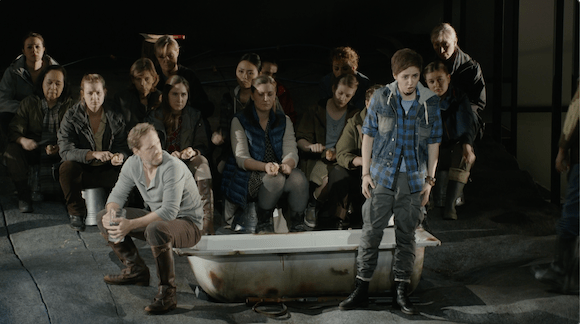Franco Faccio’s 1865 work Amleto disappeared from the opera repertoire after the disastrous opening night of its 1871 revival at La Scala only to be “rediscovered” in recent years and featured at the 2016 Bregenz Festival. It was Faccio’s second, and last opera, though he enjoyed a career as a conductor, that included eighteen years as Music Director at La Scala before being institutionalized due to the effects of syphilis. So, one naturally asks, is it any good? The answer is an emphatic “yes”. It’s not only good but seems quite advanced for an Italian opera of that date. It’s closer in spirit to Puccini than bel canto. Indeed the soliloquy Essere o non essere sounds curiously like E lucevan le stelle. It’s similar to later Verdi and, indeed, Puccini in that it’s through sung with recitative like passages and set piece arias and ensemble numbers and it’s more conventionally tonal than its contemporary Tristan und Isolde. Arguably the orchestral writing is more interesting than that for voice (Ophelia’s funeral march is very fine) and certainly the weakest parts are the ensembles. It’s probably also fair to say that there is no big hummable melody. Still, Faccio was twenty five when he wrote it and there aren’t many better operas by twenty five year olds.

Continue reading →








